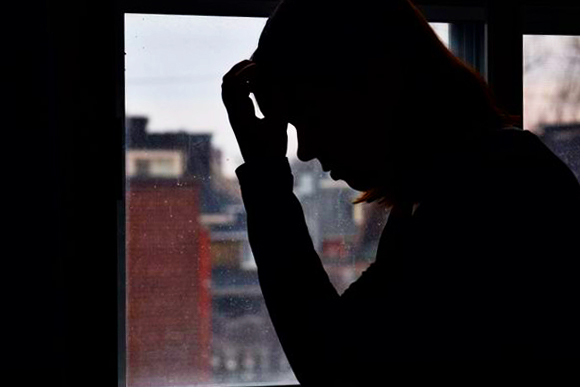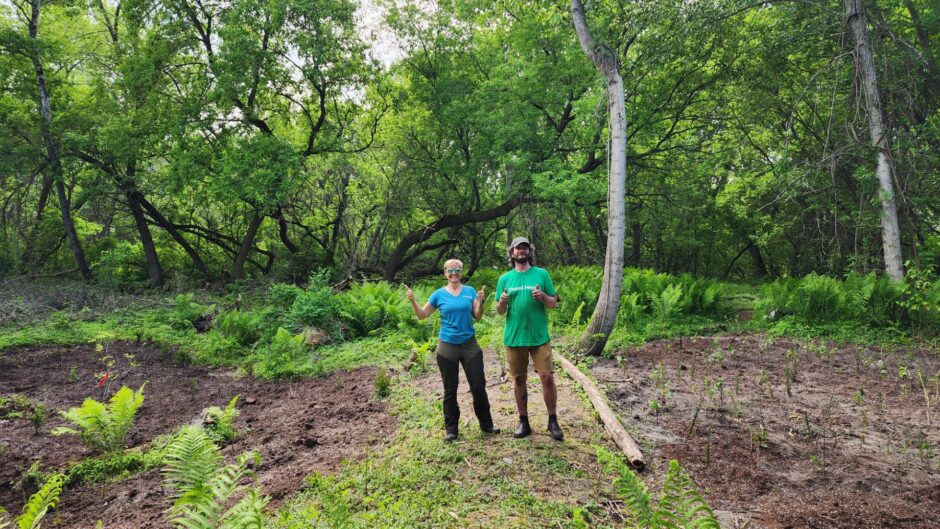Project Lighthouse affected by Ottawa Rape Crisis Centre’s closure

When Kimberly Piper, a second-year student in Algonquin’s social service worker program, first heard that the Ottawa Rape Crisis Centre would be temporarily closing its doors, she worried for survivors of sexual violence.
“I feel like we’re just sending the message essentially that they don’t matter,” she said. “We’re letting them down.”
The ORCC announced in a memo on Nov. 10 that they would be shutting down their services for six to eight months starting Dec. 2 and laying off roughly 10 staff members.
One of the clients that had access to ORCC’s specially trained counsellors is Algonquin’s own Project Lighthouse.
“They come to all of our events and are really involved,” said Sarah Crawford, sexual violence prevention and harm reduction coordinator at Project Lighthouse. The initiative aims to reduce sexual violence at the college and support survivors through community outreach, education and counselling services.
“We have a great relationship with the counsellor provided to us by ORCC,” said Crawford. “We have clients who were seeing her regularly twice a week. That’s now gone.”
The sudden announcement left many people in the city’s social work communities stunned.
Charu Malhotra is a registered psychotherapist who worked at the ORCC for 14 years. She said she was shocked when she found out the centre would be closing. “It didn’t make sense to me,” she said. “This seems to have been done without consultation or anybody’s awareness and knowledge.”
Lauren Scarsella, a former employee at the ORCC, said she felt heartbroken when she heard the news. “There’s nothing like the ORCC that offers free services to trauma survivors. It’s an essential service.”
The centre offers a 24-hour crisis line, free counselling and education on sexual violence and advocacy for victims. Malhotra said the help line in particular is a much-needed resource for survivors.
“When I worked the crisis line, I would often be the first person they ever told,” she said. “The safety of either the anonymity of the crisis line or knowing they’re getting a therapist or a counsellor with specialized training – that’s gone.”
The shutdown of the ORCC leaves the Sexual Assault Support Centre as the only English-language support centre in the city. Crawford is also concerned the sudden closure of the ORCC will leave a gap in the services they provide to students.
“It will be very problematic if survivors try to access the stress line but don’t get appropriate guidance on the services they could access if they were in distress,” she said. “Our main concern is that people are given appropriate referrals and survivors are not left behind.”
Scarsella is especially concerned with how the decision to close was communicated to clients and the public.
“The way that this has been handled is profoundly unethical,” she said. “One of the most important aspects of a therapist-patient relationship is building trust. This includes beginning to discuss the eventual end counseling services months in advance, not weeks.”
According to the ORCC’s board of directors, the closure is to update the centre’s IT infrastructure, perform renovations on the building and reassess its core programs and services.
Thameena Nazir worked as a counsellor at ORCC throughout the pandemic but left in September after growing frustrated with what she says was a lack of support from the board in shifting to remote delivery during the pandemic.
“During the pandemic we were trying to do our job safely from home,” said Nazir. “But for whatever reason our board just couldn’t either support us or let us do it ourselves. Every suggestion we had for the board, we would either get no response from them, or hear ‘we can’t do this,’” she said.
Like others, Nazir is worried for the ORCC’s client base that will be forced to find alternative resources during the closure.
“When somebody is struggling and is traumatized by something, calling somewhere where they know their counsellor has been there for them, building a therapeutic alliance, all those things that we work with survivors are instantly gone,” she said. “Now you have to call another agency where you don’t know anybody. How easy is it for someone to pick up that phone and call somebody? It’s pretty difficult.”
Many are questioning why the closure is expected to last until spring.
“If someone was to go to the emergency room with a broken leg, we wouldn’t make them wait for months to get the proper services,” said Piper. “I think it is a huge disservice to them and their healing process.”
For people like Piper, understanding the need for immediate support after experiencing assault hits close to home.
“I’m a survivor of rape,” Piper said. “At a very young age I was raped. I think if there had been an accessible source of support for me it would have been a game changer. It’s taken a long time for the healing process for me. I wonder how my path of healing would have been different had I had that support immediately. I think that’s crucial.”
Crisis counsellors organized a virtual community meeting on Nov. 19 to discuss the unexpected closure. The Save ORCC Community Action group brought 100 concerned citizens together to consider ways that the non-profit can be supported.
The upcoming holiday season, when many people will be feeling isolated, is particularly concerning to crisis workers.
“The holidays are one of the most triggering times of the year because they’re family oriented,” said Malhotra. She notes that COVID-19 has increased isolation and mental health issues for many people already. A recent report from the Sexual Assault Centre of Edmonton stated that between March and July of this year when lockdown measures were in effect, calls to the centre increased by 44 per cent.
Experts are worried that the added stress of the pandemic will make the holidays this year even more difficult for survivors of sexual violence. “We’re living through a health crisis that is causing a mental crisis,” said Scarsella.
Nazir said she hopes the ORCC’s board of directors will be more open about their decision-making process going forward into the new year.
“What I would really like to see is the board to have a clear plan and be accountable for what they’ve been doing for the last 10 months,” said Nazir.
Her advice to survivors in the meantime is to take care of their mental health. “There’s so much happening right now, and this is just another blow. It’s okay to feel upset and it’s okay to feel in pain and it’s okay to feel angry about it and hopefully some kind of change or some kind of accountability can come from this. I think it’s just important to keep honoring survivors.”
Students seeking sexual assault support services in Ottawa can reach out to:
Centre d’aide et de lutte contre les agressions à caractère sexuel
The Sexual Assault Support Centre








